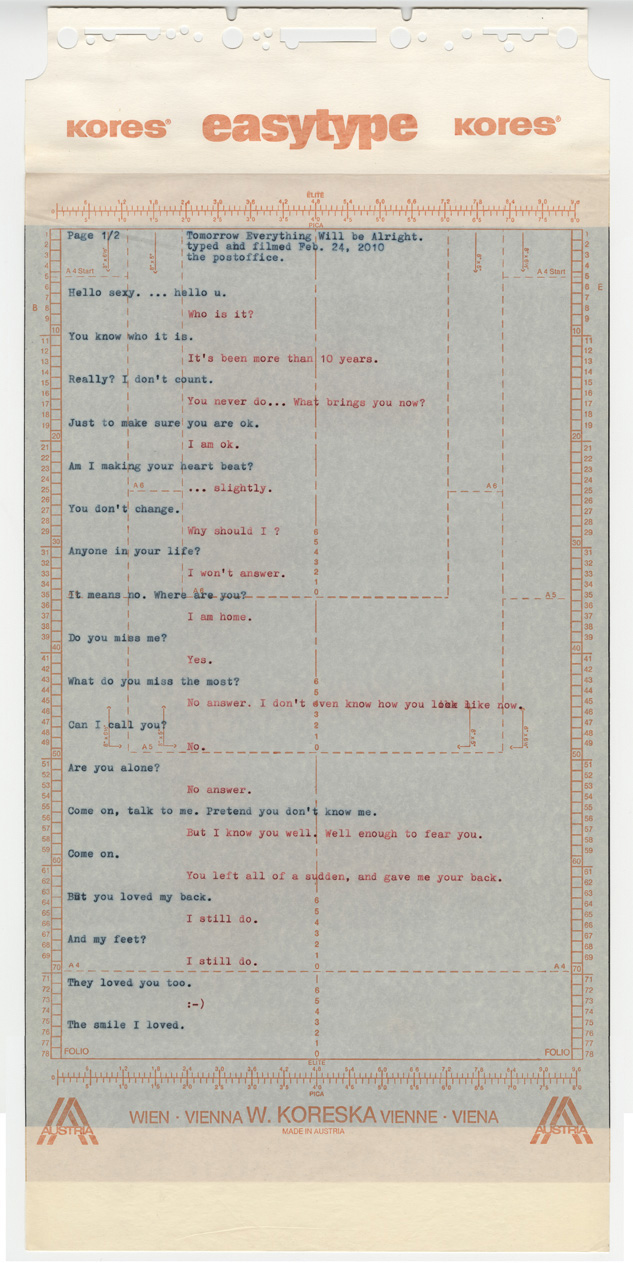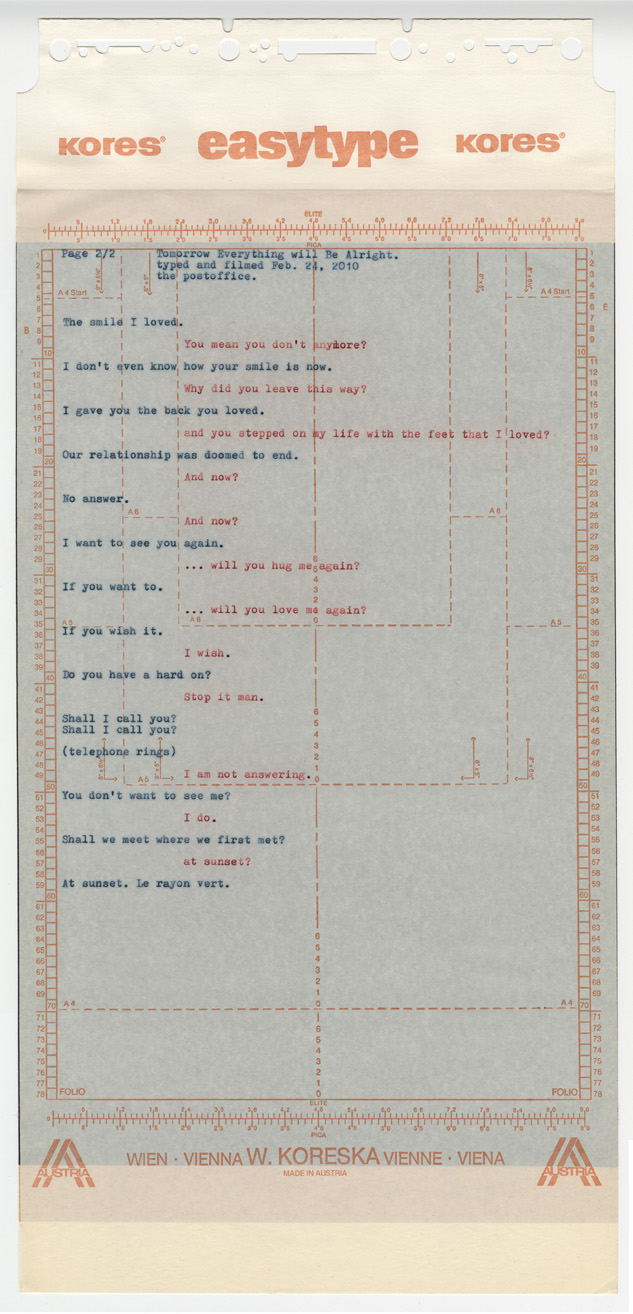AKRAM ZAATARI
— In 1981, my father asked me what do I wish for a birthday gift. I said a Film encyclopedia. I had spotted this beautiful two-volume French edition at the only library that carried french and English books in Saida, where we lived. After seeing me a few times looking at it, the owner told my father: you can have it at cost price. Nobody was going to buy it in a provincial city at war.
When I turned 16, my father asked me again what I wanted for a birthday gift. I said a typewriter. So in 1982 I got my typewriter. And from there on, I spend most of my free time updating the film encyclopedia by adding inserts with new film titles and names that I thought were important to include.
When I made Tomorrow Everything Will Be Alright (2010), I used this typewriter to simulate an online chat, or possibly simulate the unfolding of a film script literally on screen. It is a tribute to love stories that marked our imagination when we saw them on film. These are the two stencils that I typed while filming Tomorrow Everything Will Be Alright. You never see them as objects, all at once, in the film because the frame focused on what was being typed.


—
Akram Zaatari was born in 1966, in Sidon, Lebanon and currently lives in Beirut. Zaatari works in photography, video, and performance to explore issues pertinent to the Lebanese postwar condition, specifically the mediation of territorial conflicts and wars though television and media. Zaatari collects and examines a wide range of documents that testify to the cultural and political conditions of Lebanon’s postwar society. His artistic practice involves the study and investigation of the way these documents straddle, conflate, or confuse notions of history and memory. By analyzing and recontextualizing found audiotapes, video footage, photographs, journals, personal collections, interviews, and recollections, Zaatari explores the dynamics that govern the state of image-making in situations of war.
www.sfeir-semler.com
www.thomasdane.com
www.kurimanzutto.com
